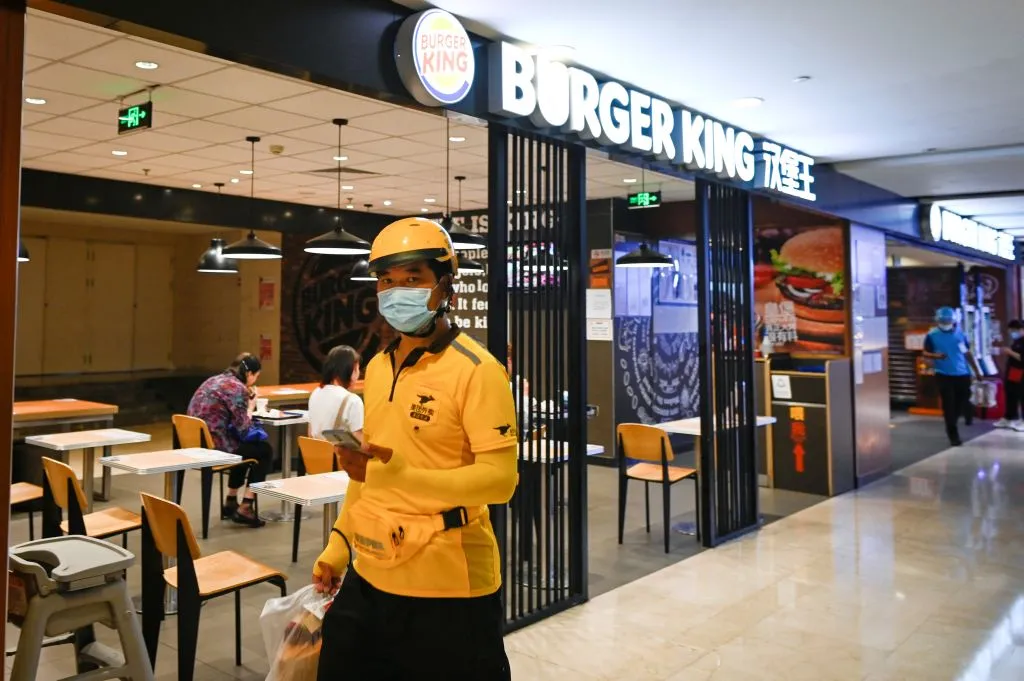Burger King’s parent company has agreed to sell a majority stake in its China operations, a move aimed at accelerating growth in one of the world’s fastest-evolving fast-food markets. The deal signals the brand’s renewed focus on expansion through local partnerships and a more agile approach to the competitive Chinese market.
Sources familiar with the transaction said the sale involves over 50% of Burger King China, transferring operational control to a consortium of local investors and private-equity partners with expertise in food service and real estate. Financial terms of the deal were not disclosed, though analysts expect the transaction to be valued at several hundred million dollars, reflecting the brand’s growth potential in China’s urban centers.
Strategic Shift for Burger King
Burger King has faced a challenging environment in China, where global fast-food chains contend with rising local competitors, changing consumer tastes, and regional regulatory dynamics. By selling a majority stake, the company aims to leverage local expertise, expand its footprint, and adapt menu offerings more quickly to local tastes.
“Partnering with local investors allows Burger King to scale faster, optimize site selection, and respond to consumer preferences more effectively,” said Daniel Zhang, an analyst at Euromonitor International. “It’s a strategic pivot that many Western brands have taken to thrive in China.”
The sale also frees capital for Burger King’s parent company, Restaurant Brands International (RBI), which owns other brands such as Tim Hortons and Popeyes. RBI has emphasized aggressive international expansion, particularly in Asia, as a priority for long-term revenue growth.
China’s Fast-Food Market: Opportunities and Challenges
China’s fast-food market is the second-largest globally, valued at over $200 billion in 2025, with continued growth driven by urbanization, rising disposable incomes, and the popularity of quick-service dining.
However, the market is fiercely competitive. Domestic chains like Dicos and Yonghe King are expanding rapidly, offering affordable, locally tailored menus. At the same time, global rivals such as McDonald’s, KFC, and Starbuckshave invested heavily in delivery technology, digital ordering, and premium menu options to capture younger consumers.
“For Burger King, China is high-reward but high-risk,” said Li Wei, a Shanghai-based restaurant consultant. “A majority-local ownership structure can provide the flexibility and local insight needed to grow successfully.”
Implications for Growth and Expansion
Under the new ownership structure, Burger King China plans to increase store openings across tier-1 and tier-2 cities, expand delivery and digital ordering platforms, and experiment with localized menu items tailored to regional tastes. Analysts estimate that with the additional investment and strategic flexibility, Burger King could double its store count in China over the next five years, positioning it as a stronger competitor to KFC and McDonald’s.
RBI has also indicated that profit-sharing agreements and brand standards will remain in place, ensuring that quality, marketing, and customer experience align with global expectations.
“Local control doesn’t mean abandoning brand values,” said Zhang. “It means optimizing execution in a market that moves differently than North America or Europe.”
Investor and Market Reactions
Investors welcomed the news as a pragmatic step to unlock growth while mitigating operational risk. RBI’s shares rose modestly following reports of the deal, reflecting optimism about improved profitability and strategic focus in Asia.
“This move is about accelerating growth while reducing the operational burden of running a complex market remotely,” said Susan Huang, a portfolio manager specializing in global consumer brands. “It’s a smart allocation of capital and resources.”
The deal also highlights a broader trend of Western fast-food chains forming majority-local partnerships in China, including McDonald’s with CITIC and Yum! Brands’ collaborations with regional investors.
Outlook and Future Plans
Looking forward, Burger King China’s management under local investors will likely focus on:
- Rapid expansion in high-density urban areas
- Menu localization with seasonal and regional offerings
- Digital and delivery innovation to capture younger consumers
- Operational efficiency and real estate optimization
Analysts expect the new structure to accelerate store openings, boost same-store sales, and enhance profitability, creating a model that other Western chains may emulate in China.
“With local investors at the helm, Burger King can act faster, be more flexible, and compete more effectively in a dynamic market,” said Li Wei. “It’s a bold move, but necessary for long-term success.”
Conclusion
By selling a majority stake in its China operations, Burger King is taking a decisive step to revitalize growth in one of its most promising international markets. The move reflects the brand’s recognition that local expertise, agility, and investment are critical to succeeding in a fast-changing, highly competitive landscape.
As Burger King China embarks on this new chapter, industry watchers will be closely monitoring store openings, digital adoption, and menu innovation, which could determine whether the fast-food chain can secure a larger share of China’s growing and increasingly sophisticated consumer market.







